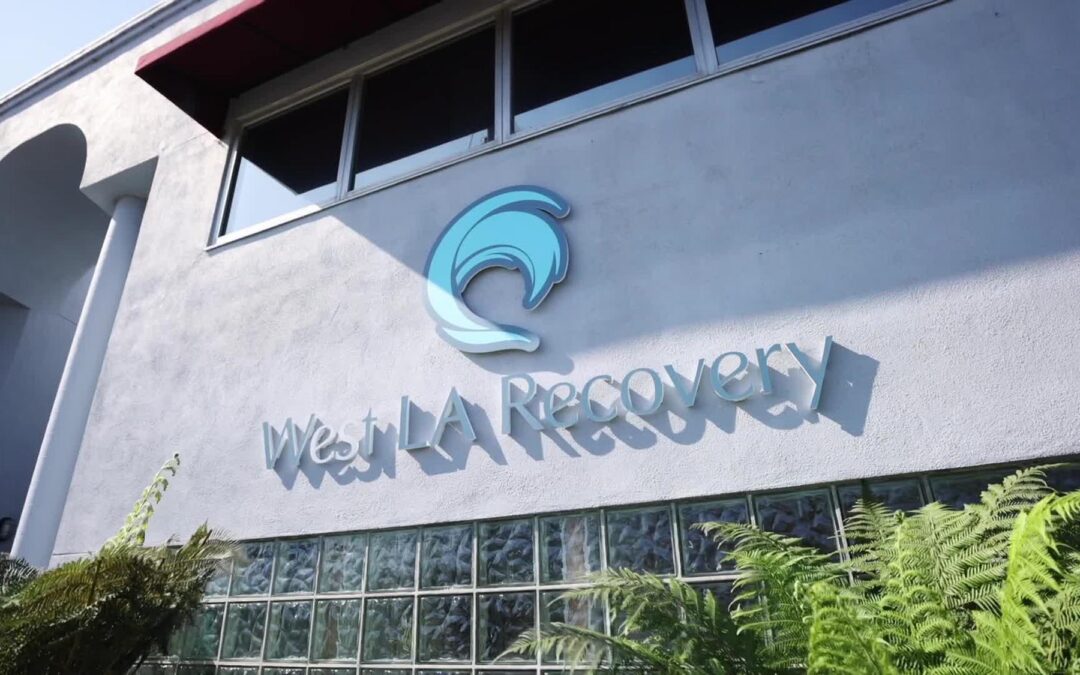1. Overwhelming Euphoria
The early days of sobriety often bring an unexpected gift: a powerful wave of euphoria that can feel almost intoxicating. This natural high, known as the pink cloud, creates a sense of boundless joy and possibility that many people experience after completing detox and entering recovery.
During the initial phase of getting sober, your brain chemistry begins to stabilize. As your body cleanses itself from substances, neurotransmitters responsible for pleasure and happiness start functioning normally again. This biological reset can trigger intense feelings of wellbeing – a stark contrast to the emotional numbness or pain experienced during active addiction.
The euphoric sensation might manifest as:
- Uncontrollable smiling and laughter
- A surge of physical energy
- Deep appreciation for simple daily experiences
- Heightened sensory awareness
This euphoric state serves as a powerful reminder of life’s natural pleasures without substances. While it’s important to embrace these positive feelings, understanding that they’re part of your recovery journey helps maintain perspective. The pink cloud represents your brain and body healing, celebrating their return to natural balance.
Think of this euphoria as your recovery’s honeymoon phase – beautiful and meaningful, yet just one chapter in your ongoing journey toward lasting sobriety.
2. Heightened Optimism About Life
The pink cloud phase brings an extraordinary sense of optimism about life’s possibilities. Many individuals in early recovery discover a renewed appreciation for daily experiences, viewing their surroundings through rose-tinted glasses. This heightened sense of hopefulness creates a powerful catalyst for positive change.
During this phase, simple activities become sources of joy and inspiration. A morning cup of coffee might taste better than ever, while a walk in the park could feel like a profound connection with nature. This refreshed perspective often drives individuals to embrace healthy lifestyle changes with enthusiasm.
The natural boost in positivity serves as valuable fuel for the recovery journey. People often report:
- Rediscovering old hobbies and interests
- Strengthening relationships with family and friends
- Developing new, health-focused routines
- Setting ambitious personal and professional goals
This surge of optimism creates a strong foundation for maintaining sobriety. Many individuals use this energy to establish beneficial habits like regular exercise, meditation, or journaling. The pink cloud’s influence can spark transformative changes in diet, sleep patterns, and social connections.
The heightened sense of possibility during this phase helps individuals envision and work toward a fulfilling sober life. This natural optimism becomes a powerful tool for building resilience and maintaining motivation throughout the recovery process.
3. Increased Emotional Awareness
During the pink cloud phase, many individuals experience a heightened sense of emotional awareness. This newfound clarity allows you to recognize and process feelings that may have been dulled or suppressed during active addiction. You might notice subtle shifts in your mood, identify specific triggers, and understand the root causes of your emotional responses.
This enhanced emotional intelligence plays a vital role in long-term recovery. When you’re attuned to your emotional state, you can:
- Recognize early warning signs of potential relapse
- Build stronger, more authentic relationships
- Make conscious decisions aligned with your recovery goals
The ability to navigate your emotional landscape effectively creates opportunities for meaningful self-care practices. Consider these practical approaches:
- Mindful Check-ins: Set aside quiet moments throughout the day to assess your emotional state
- Journaling: Document your feelings, patterns, and insights
- Body Awareness: Notice physical sensations connected to different emotions
- Healthy Expression: Engage in creative activities or exercise to process emotions
This heightened emotional awareness serves as a powerful tool in your recovery journey. By embracing and understanding your feelings, you develop resilience and maintain stronger connections with yourself and others in recovery.
4. Overconfidence in Sobriety Maintenance
The pink cloud phase often brings a surge of confidence that can inadvertently become a stumbling block in recovery. Many individuals experiencing this euphoric state begin to believe they’ve completely conquered their addiction, leading them to skip support meetings, distance themselves from their recovery community, or minimize the importance of their ongoing treatment plan.
This overconfidence manifests in various ways. You might find yourself thinking, “I’ve got this under control” or “I don’t need meetings anymore.” These thoughts can create a false sense of security, potentially setting the stage for vulnerability when facing future challenges.
The risks of this overconfidence extend beyond missed meetings. Some people reduce communication with their sponsors, stop practicing essential coping strategies, or return to environments that previously triggered substance use. This disconnect from support systems can weaken the foundation of recovery just when it needs strengthening. It’s important to remain vigilant as small slips can lead to significant setbacks, a phenomenon known as relapse drift.
Staying grounded requires active engagement in your recovery journey. Maintaining regular check-ins with support groups, continuing therapy sessions, and acknowledging that recovery is an ongoing process helps build a sustainable path to long-term sobriety. Remember that confidence in your ability to stay sober is healthy – overconfidence that leads to neglecting recovery tools is not. Additionally, being aware of five warning signs can help you stay ahead of potential relapses.
5. Tendency to Overlook Recovery Challenges
The pink cloud’s euphoric haze can create blind spots in recognizing daily recovery challenges. Many individuals find themselves dismissing the importance of managing routine responsibilities, maintaining relationships, or addressing underlying emotional issues. This temporary state of mind might lead to skipping support group meetings or therapy sessions, viewing them as unnecessary during this perceived period of stability.
When the pink cloud begins to dissipate, reality often resurfaces with unexpected intensity. The emotional impact can be jarring – feelings of anxiety, stress, and self-doubt might emerge as daily challenges become more apparent. Simple tasks like paying bills, showing up for work, or maintaining healthy relationships suddenly require more effort than anticipated during the euphoric phase.
Maintaining a balanced perspective requires active engagement with support systems and a commitment to personal growth. Creating a structured daily routine helps anchor recovery efforts and provides much-needed stability. This structured approach includes:
- Regular check-ins with sponsors or counselors
- Consistent participation in support group meetings
- Honest communication with family and friends about challenges
- Daily self-reflection to identify potential areas of concern
Acknowledging that recovery involves both victories and challenges strengthens resilience for the long-term journey. Recording thoughts and experiences in a recovery journal can help track patterns and maintain awareness of ongoing growth opportunities while navigating through different phases of sobriety.
As part of this journey, it’s crucial to have a solid plan for maintaining sobriety once treatment ends. This involves creating an aftercare plan that supports sobriety and aids in building a fulfilling life in recovery. Such planning not only provides a roadmap for the future but also reinforces the commitment to personal growth and recovery.
Navigating the Pink Cloud Phase Effectively
The pink cloud phase presents unique opportunities for building a strong foundation in recovery. A balanced approach helps harness the positive energy while maintaining realistic expectations.
Practical Daily Strategies:
- Create a structured daily routine incorporating meditation and exercise
- Keep a recovery journal to track emotions and progress
- Set small, measurable goals rather than grand, sweeping changes
- Practice mindfulness to stay grounded in the present moment
Building a robust support network proves essential during this phase. Regular attendance at group therapy sessions provides valuable perspectives from others who’ve experienced similar journeys. These connections offer reality checks and emotional support when the initial euphoria begins to shift.
Individual therapy sessions remain crucial even during periods of intense positivity. A skilled therapist helps process emotions, develop coping mechanisms, and prepare for future challenges. They provide professional guidance to navigate both the highs and potential lows of recovery.
Self-Care Practices:
- Maintain regular sleep patterns
- Focus on proper nutrition
- Engage in enjoyable hobbies
- Establish healthy boundaries in relationships
The pink cloud phase offers an opportunity to build strong recovery habits. Using this energy to establish sustainable practices creates a solid foundation for long-term sobriety. Remember to celebrate progress while remaining committed to the ongoing work of recovery.
Seeking Professional Support at West LA Recovery
At West LA Recovery, we understand the complexities of navigating early sobriety, including the pink cloud phase. Our experienced team provides comprehensive support through every stage of your recovery journey, helping you maintain balance during these euphoric periods while building a strong foundation for lasting sobriety.
We offer personalized treatment programs designed to address your unique needs and circumstances. Whether you’re experiencing the intense emotions of the pink cloud or seeking guidance on maintaining your recovery momentum, our dedicated professionals are here to help.
Ready to build a sustainable recovery journey?
Don’t navigate the pink cloud phase alone. Contact us today to learn how our evidence-based programs and compassionate support can help you transform these early recovery experiences into lasting positive change. Our admissions team is available 24/7 to answer your questions and guide you toward the next steps in your recovery journey.
Your path to lasting recovery starts here – reach out now by visiting our contact page.







